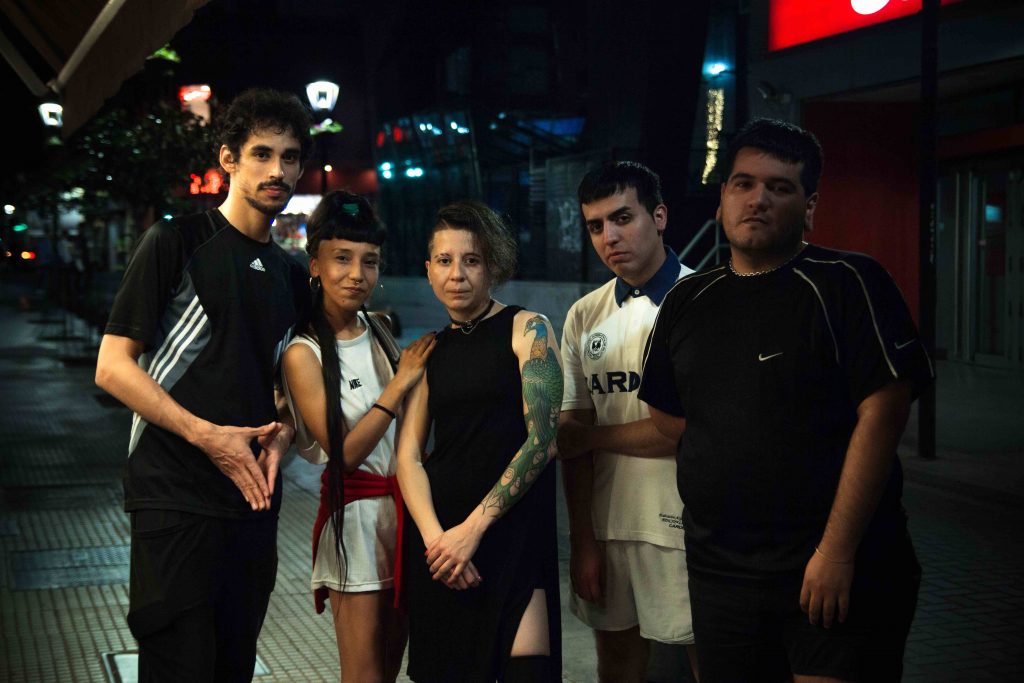In HiedraH’s hometown, they made dancing illegal except for those with a permit. But the Buenos Aires collective loves dancing more than most things on this earth. The connection between the right to party and other struggles for civil rights is foremost for the organizers. Its bichas — HiedraH’s term for its inclusive public — make noise, party, dance in the streets, as a way to affirm their own existence.
Argentina is not riding high at the moment. The election of right-wing, business-oriented President Mauricio Macri did not bring the prosperity he promised during the election. The national economy is lethargic. Macri raised eyebrows with an immigration crackdown last year, and with his doubts about just how lethal the Dirty War really was. In 2017, his proposed labor reforms led to violent conflict between law enforcement and protesters.
To further understand the context into which HiedraH was born, you also have to know about two tragedies that devastated Buenos Aires: the 2004 República Cromagnon club fire that killed 175 people and five overdose deaths at the 2016 Time Warp festival. Rather than honor the victims’ reasons for being out in the first place, politicians have used their deaths as an excuse to impose draconian restrictions on large-scale concerts and festivals. Even bars must have a special city permit for their patients to be able to dance legally. Permitting is a costly process during an economic crisis, especially for party promoters who cannot meet hefty bar minimums.
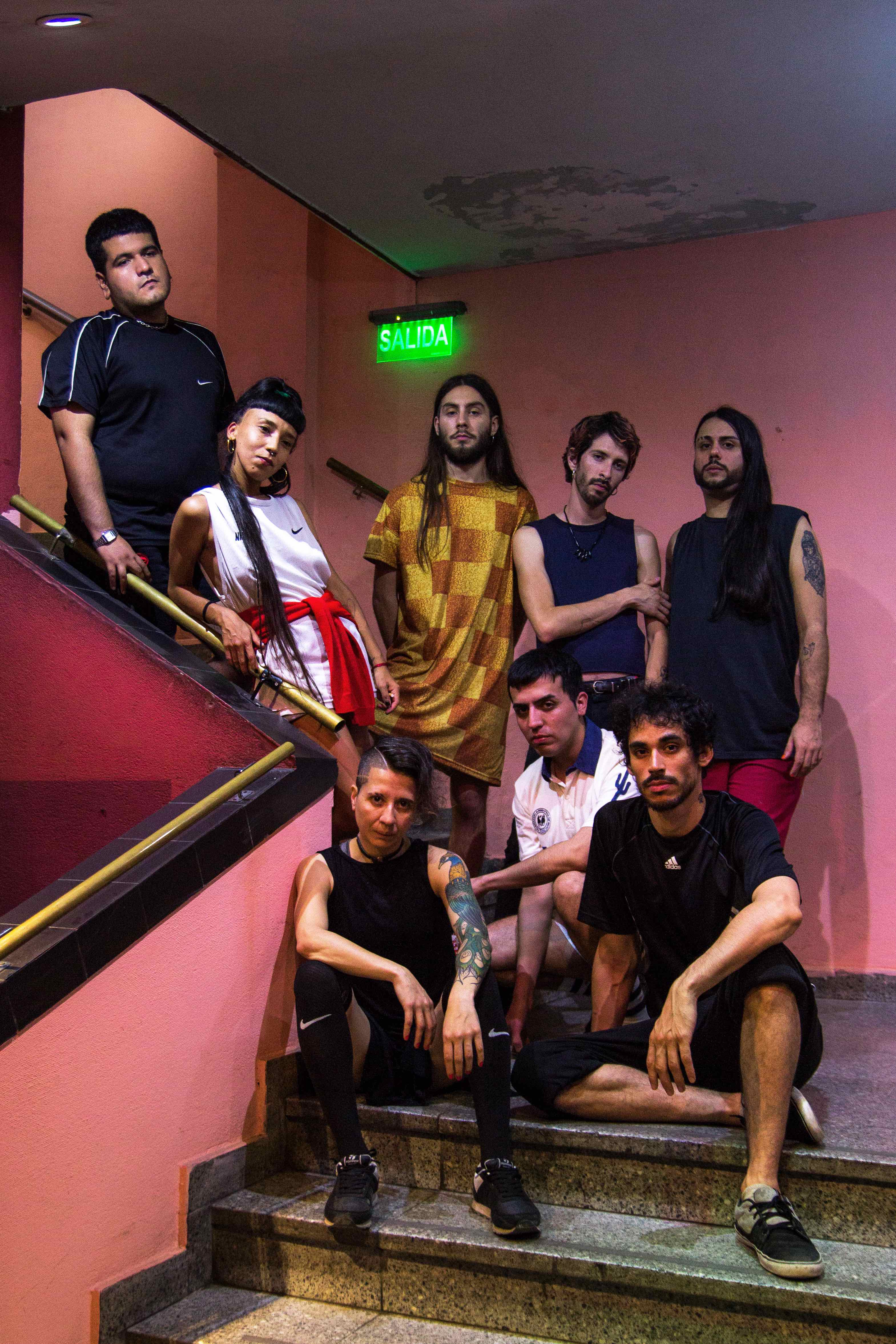
Yban López Ratto, Nahuel Colazo, and Melody Tayhana were well aware of the restrictive effects permits were having on the capital’s nightlife when they founded their collective in 2013. The three were studying film together at the city’s Escuela Nacional de Experimentación y Realización Cinematográfica. Tayhana is now based in Mexico City, is affiliated with NAAFI, and has a new club baby named Encuentros Furtivos. She left HiedraH last year to focus on other projects, but the collective will collaborate with Encuentros Furtivos for a Mexico City event on April 12 featuring Brazilian DJs Pininga and BADSISTA.
At HiedraH’s parties, bichas of all shapes, genders, and sizes come to sweat until morning.
The trio were club demons; they loved to go out. But they felt something was lacking in the city’s queer nightlife offerings, and needed an option beyond the homonormative gay clubs. HiedraH’s members believe in dance floor connection. “Dancing is not minor,” says Colazo. “It means you’re moving your body, sharing space with others.” They saw a clear need for a space in which they felt free to move as they pleased.
At the time, none of them were DJs, but Tayhana learned quickly, and they assembled a talented stable of guest talent. HiedraH became known for a distinctive sound that cuts a path through the house- and techno-dominated Buenos Aires nights. It’s not a party that prioritizes getting drunk, fights, or hookups (though the first and definitely the last has been known to happen). Bichas of all shapes, genders, and sizes come to sweat until morning to a dark collage of hardstyle, reggaeton, Brazilian batucada, folklórico, and cumbia turra, intervened with samples of radical political discourse.
On September 4, 2013, the first HiedraH party took place in “a space that didn’t have an exact address,” remembers Colazo. “We made a little map for people. We told everyone it was a black door next to a restaurant that was on the corner.” In the years that followed, HiedraH’s commitment to creating alternative spaces made it impossible to land a venue cleared for public events. When the cops showed up, HiedraH’s permit-less organizers would explain that it was all a big birthday party to avoid getting fined.
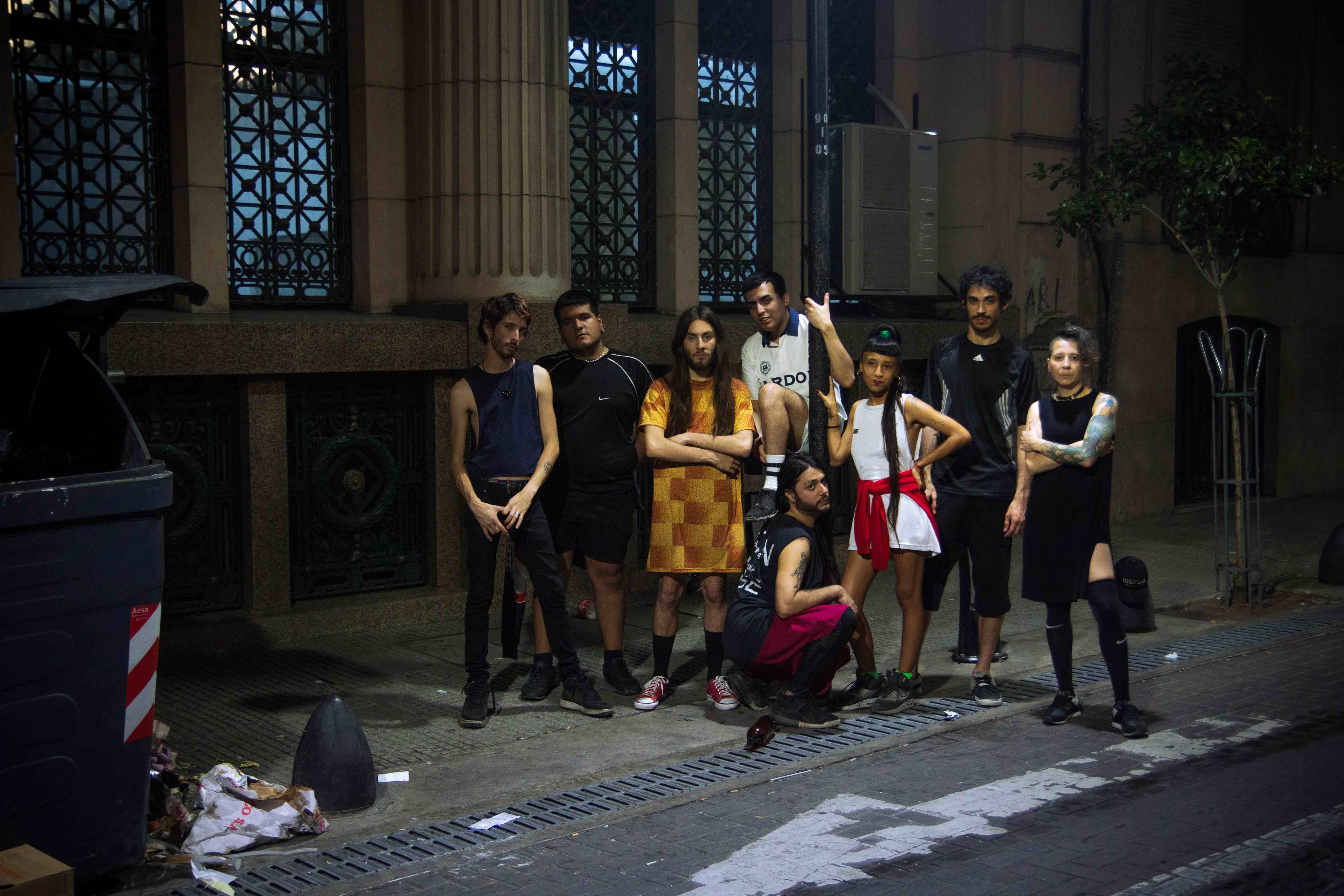
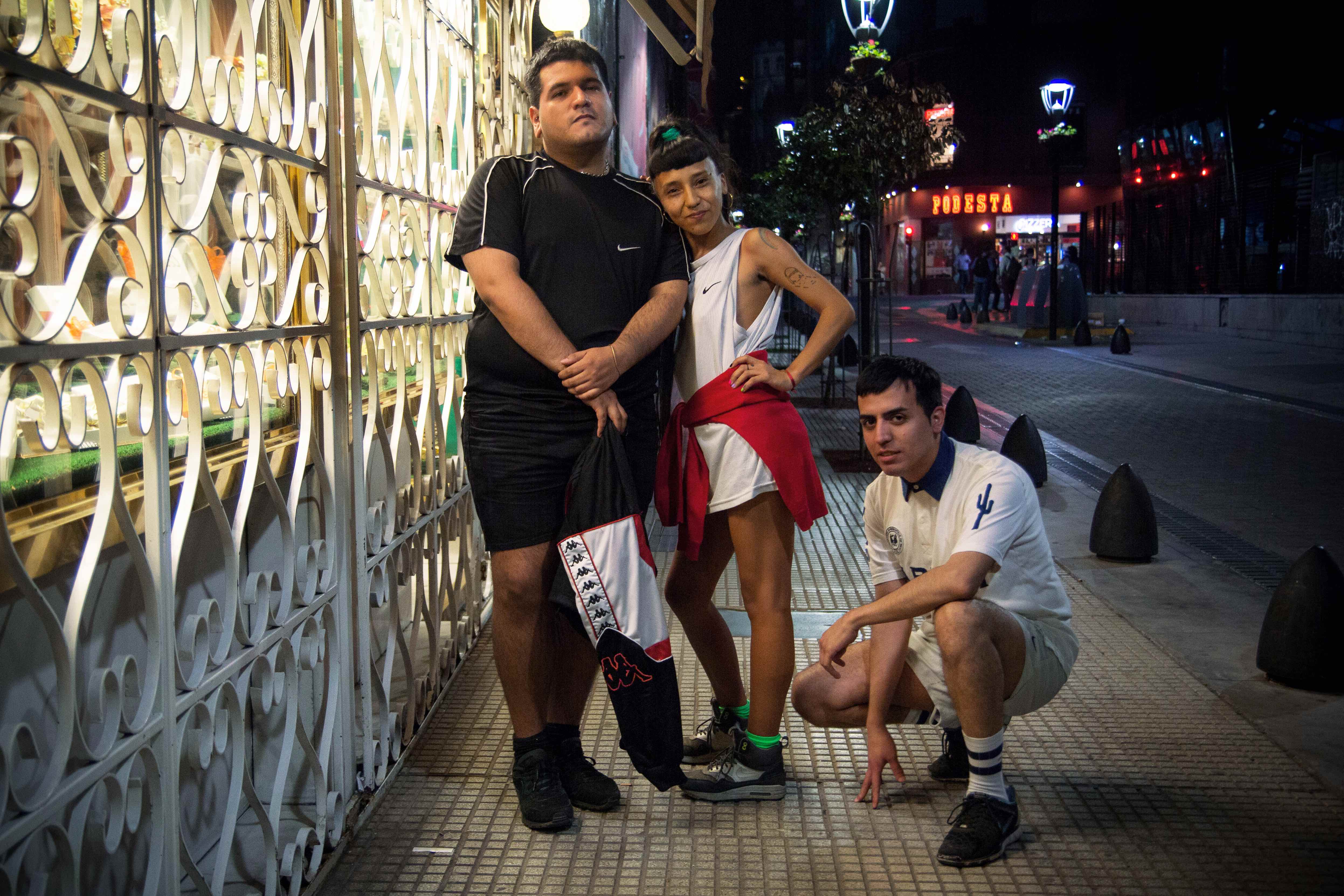
In some ways, those days are behind them. HiedraH has grown to the point where its parties draw up to 600 people. That means it’s been able to establish a working relationship with a club in the hip, monied Palermo neighborhood. Now, after releasing a string of aggressive original tracks — Aggromance’s hard-edged take on reggaeton duo Plan B was the series’ official debut — the collective has attracted international attention, collaborators, and bookings.
“If there’s something that unifies us, it’s precarity.”
In April, a compilation that spans the length of the HiedraH universe came to light, including tracks from collective members Desdel Barro, Aggromance, Moro, and BRAIAN, Salviatek co-founders Pobvio and Lechuga Zafiro, as well as Chile’s Alpha S, and Brazil’s Pininga, who is currently on tour with baile funk gender punk Linn da Quebrada. Esquirlas takes as its theme the power of identity in shielding ourselves from the vagaries of capitalism. It invokes memory’s strength in self-location. Esquirlas‘ producers pass whispers about their homes across Latin America; the way the rain sounded on the roofs of their childhood, the music to which their older siblings danced, the rhythm of the music played to express political resistance on their block. The collective says their most ambitious recording project to date serves to place their continent of collaborators; in fact, it acts as a “cartografía bailable.”
If time has brought relative success to the collective, it has also brought a sharpened sense of why it exists in the first place. Last year, the departure of Tayhana (“the mother of the project,” says López) inspired a moment of reflection for López and Colazo. They wound up with an increased clarity about their main focus: making an impact in their Buenos Aires community. “HiedraH is closer now to being a social organization, a militant artistic collective of Buenos Aires with specific, local projects and politics,” says Colazo.
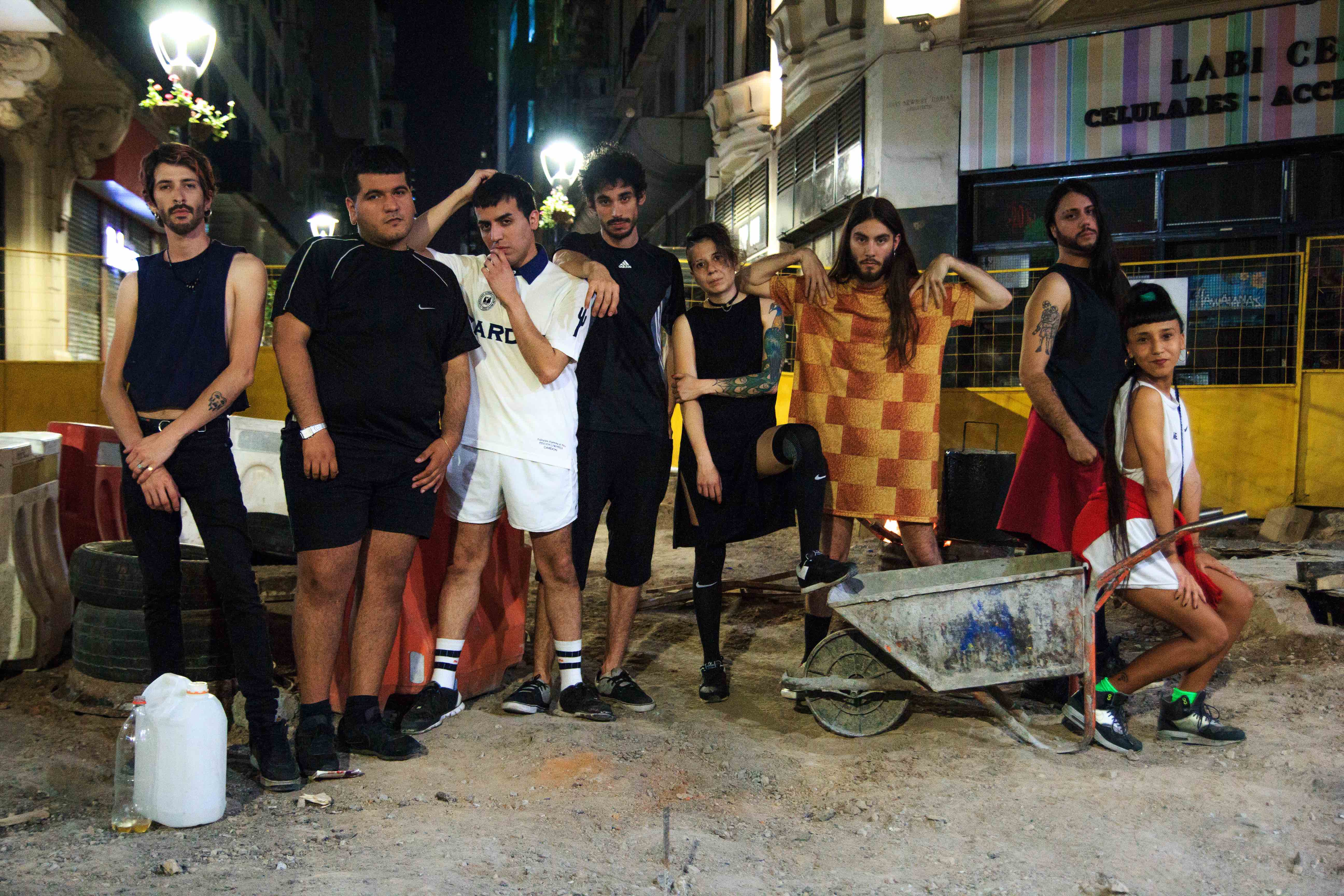
The collective has since expanded to nine members: Nahuel Colazo, Ybán López Ratto, Moro, BRAIAN, Desdel Barro, Retumb4, Aggromance, Brea, and art director Jusomor. Many are emerging young producers and DJs who already had a clear vision of where HiedraH’s potential lay because they had seen it for themselves on the dance floor. The group shares resources between its members. In an interview with Remezcla, Colazo is proud to announce the collective was able to buy headphones to record the other day. “If there’s something that unifies us, it’s precarity,” says López.
“It is our duty to be coherent in the world in which we choose to live.”
Recent addition BRAIAN, aka producer Cintia Lucero, released a head-thrashing club edit inspired by intersectional dictatorship-era queer Chilean poet Pedro Lemebel through the label. HiedraH is also the home of her “Cartografía Musical,” an extraordinary three-part musical reinterpretation (only the first third has been released) of a poem and dance piece put together by her militant parents during the repressive dictatorship of Jorge Rafael Videla.
“This path was possible thanks to everything I have learned (and keep learning) in HiedraH,” said BRAIAN upon the release of the Lemebel-inspired track. “The quest to make the other uncomfortable, to play with those differences to strengthen ourselves, so that my body can be a channel of communication with others through movement.”
Though it has become stylish for party promotion to spout activist buzzwords, HiedraH increasingly sees political involvement as the core of its mission. In 2017, the collective united its bichas with artistic action collective Escena Política for a daytime march between two independent cultural centers. It was meant as a visible showing of Buenos Aires residents who are sick of governmental mismanagement of cultural institutions, but who were passionate about dance, music, and performance in the city. The march ended with a free party on the street. The collective has joined a coalition to crash the city’s Pride parade two years in a row, and has recently become active in BsAs’ Asamblea de Maricas y Bisexuales, an alliance of radical queer groups that looks to protect sexual diversity in the city. The group’s show on La República Radio often features activists; an episode from 2017 starred the organizers of the Marcha Nacional Contra el Gatillo Fácil, Argentina’s yearly anti-police violence protest.
López is clear that he does not see these events as extracurriculars for HiedraH, but rather that activism goes hand in hand with its parties. “A passive public, anyone who is only looking to consume music, shows, drugs — and go back to reality Monday through Friday — doesn’t serve us,” he says.
“In Buenos Aires, they’re a fundamental pillar of nightlife culture and they’re slowly extending their ideas to other areas,” says longtime collaborator Lechuga Zafiro, who says he’s lost count of how many times he’s played the party. “The collective is fundamental because they are people with a conscience and very particular values; passion, struggle, respect, intensity, sensuality.”
“It’s not our duty to change the world of others,” reflects López Ratto on the importance of an anti-oppression nightlife space. “But it is our duty to be coherent in the world in which we choose to live.”
HiedraH’s first compilations Esquirlas is out now.



